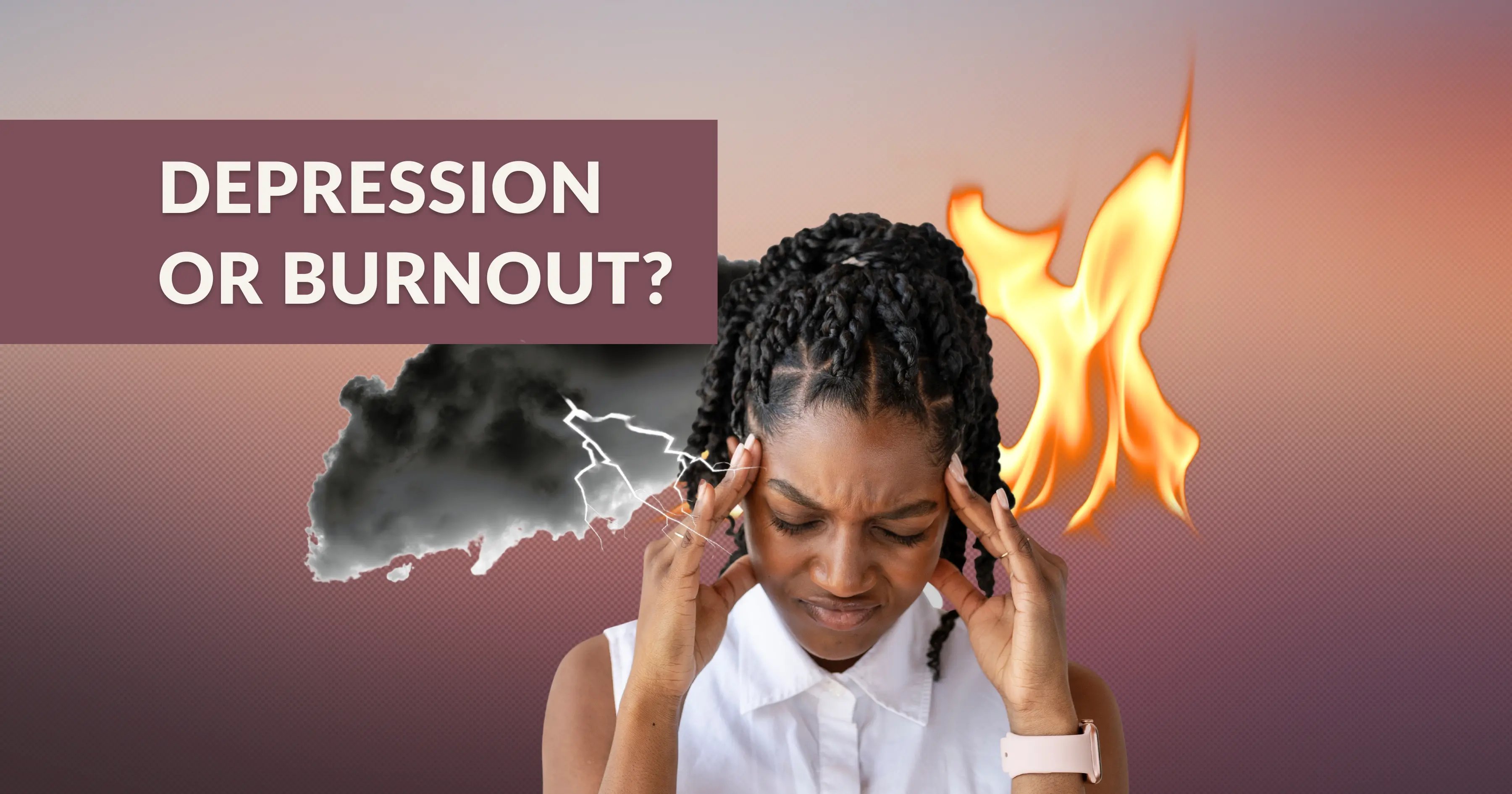
Therapr Team
Feelings of exhaustion, demotivation, and sadness are common experiences, but when these feelings become persistent, it’s important to dig deeper. Are you simply burned out, or are you facing something more serious like depression? Although the symptoms may overlap, burnout and depression differ significantly in their roots, impact, and necessary interventions. This article aims to help you distinguish between the two and find the appropriate support if needed.
Burnout is a state of emotional, mental, and physical exhaustion caused primarily by prolonged and excessive stress, often related to work or caregiving responsibilities.
Key characteristics of burnout include:
Burnout is typically situational. When the stressful conditions change (like switching jobs or taking extended rest), symptoms often improve.
Depression, or major depressive disorder, is a clinical mental health condition that affects how a person feels, thinks, and handles daily activities.
Symptoms of depression include:
Unlike burnout, depression isn’t limited to work-related stress and can impact every aspect of life, even when external stressors are minimal or absent.
Here’s how the two conditions compare:
Root Cause:
Scope of Impact:
Mood and Emotions:
Recovery Approach:
Energy Levels:
Yes, if left unaddressed, burnout can spiral into clinical depression. Chronic stress wears down emotional resilience, and feelings of helplessness or hopelessness may begin to extend beyond the workplace. Recognizing burnout early and addressing it proactively is essential to prevent deeper mental health struggles.
If symptoms persist beyond work situations, affect personal life, or include signs like suicidal thoughts, it's critical to seek professional help.
A mental health professional can differentiate between burnout and depression and create a tailored treatment plan.
Signs that you should seek help immediately include:
If symptoms persist despite these changes, consider seeking a psychological evaluation to rule out depression.
While burnout and depression share overlapping symptoms, their differences are critical to understanding the right path to recovery. Burnout tends to be tied to external factors like work and often responds to lifestyle changes. Depression, however, is a pervasive mental health disorder requiring clinical attention. Recognizing the signs and seeking appropriate help can make all the difference in regaining balance, energy, and joy in life.
Author profile
Read more articles by Therapr Team.
Get the latest wellness insights delivered to your inbox.
Subscribe to Newsletter